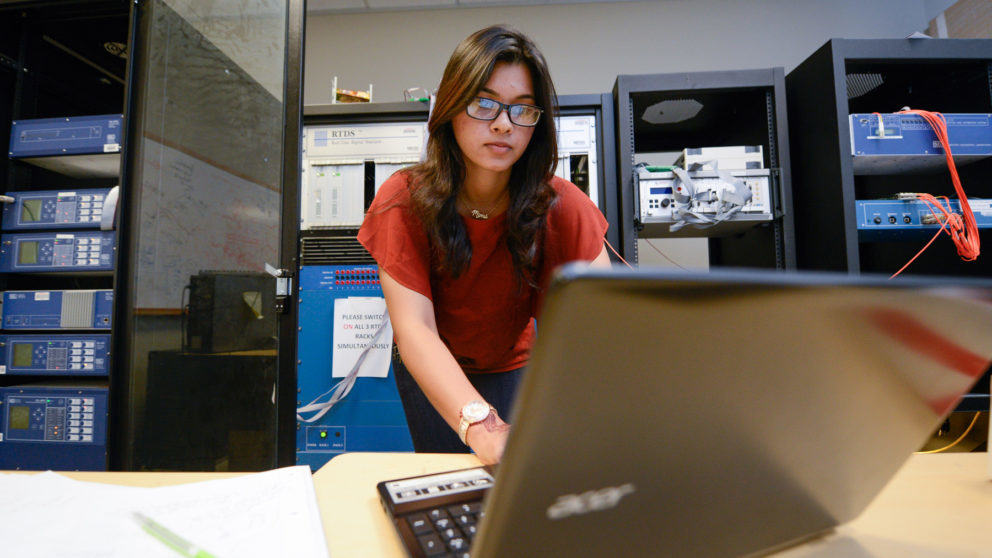Summer Research Internship for Undergraduates
For students interested in conducting research, the FREEDM SRIU Program is an opportunity to work closely with faculty and graduate students. Details for summer 2023 are below:
- Research Focus: Electric Vehicle Charging
- Proposed Topics: Assistive technologies for charging for people with disabilities, Wireless charging, Micromobility charging
- Dates: May 30-July 28
- Funding: $5,000 stipend per student
- Housing: This program will not offer a housing stipend. We assume participating students will commute to FREEDM each day.
- Eligibility
- Completed at least second year of undergraduate studies.
- Majors from Engineering, Science, Design, Policy, Public Administration.
- Preferences will be given to female applicants, underrepresented groups, and those with disabilities.
A typical week will involve meeting with the supervising graduate student and faculty member, team brainstorming, time in the lab developing prototypes, and attending NC State sessions for all summer researchers on soft skills like public speaking, library research, and poster design. Researchers can also join social activities on campus as part of the summer experience. More general information on summer research at NC State can be found here.
If you are interested, please submit your application using this google form. For the statement of interest, please upload a pdf of two pages or less addressing the following areas:
- Your interest in electric vehicles
- Why you selected your current college major of study
- Plans for post graduation
- What you hope to gain from this summer research experience.
NC State Renewable Electric Energy Systems Concentration
The Electrical and Computer Engineering Department at NC State offers an undergraduate concentration in Renewable Electric Energy Systems (REES) within the Bachelor of Science Electrical Engineering degree program. The REES concentration addresses the need to develop new technologies that can harvest the geographically distributed renewable energy such as solar and wind efficiently; and create “smart” electric power systems capable of integrating geographically distributed renewable energy based generators. Students enrolled in REES receive training in renewable energy, power systems, power electronics and design of electromechanical systems. Learn more here.

